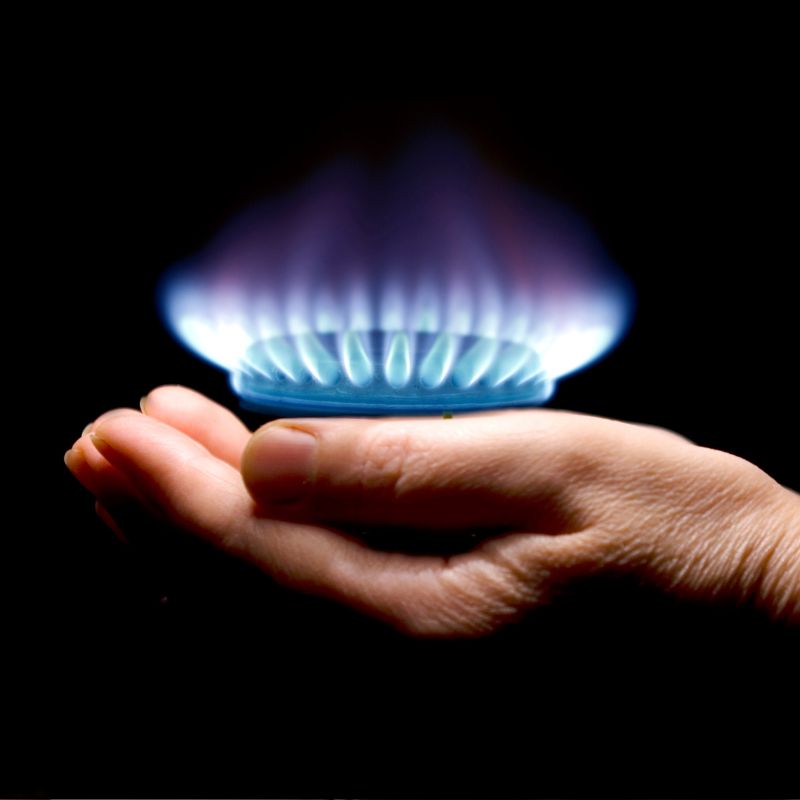A gas fireplace is clean, safe to operate, and offers ambiance and ease of use – so it makes sense that you’d want to enjoy its room-enhancing glow all the time. That said, your fireplace needs to be used with optimal safety as well as coziness in mind.
So when it comes to the question of whether you can safely keep your fireplace going overnight, getting a well-informed answer is important to help ensure both comfort and safety in your home.
So should you keep your fireplace going when you aren’t awake? We can answer this, as well as handle any and all of your gas fireplace service needs. Call or schedule with us online now.
Can Gas Fireplaces Be Left On All Night?
In short, there are risks involved with leaving any fireplace operating through the night – when you won’t be consciously attending it – and therefore it isn’t recommended.
While newer gas fireplaces are engineered with safety features, there’s always the possibility of malfunction or accident that could lead to a dangerous situation.
While these safety risks are unlikely to become reality, it’s unquestionably safer to extinguish a fire before going to bed. Thankfully, with a gas fireplace this can be achieved quickly and completely at the flip of a switch or push of a button – one of many convenient features gas fireplaces and inserts offer.

How Long Should I Let My Gas Fireplace Run?
Two factors to help guide the usage time of your fireplace include:
- Ventilation. When using a fireplace, ventilation is an important consideration. This is especially the case when using your fireplace for an extended amount of time. If a room has poor ventilation, oxygen depletion and carbon monoxide buildup can occur. One safety feature modern gas fireplaces often provide is oxygen depletion sensors. Nevertheless, fireplace users should always be proactively attentive to ventilation.
- Manufacturer’s Guidelines. Look, we’re all guilty of tossing out an instruction manual or two. But when it comes to an important home system such as a fireplace, it’s important to know and follow manufacturer’s instructions regarding operating times and safety precautions. While designers try to make their products safe and intuitive to use, different models may have specific recommendations regarding use, and particularly about continuous operation.
Gas Fireplace: Dos & Don’ts
While you want to note specific manufacturer guidelines, there are some general guidelines you can keep in mind for safe operation.
Dos:
- Follow a schedule of regular maintenance. Scheduling annual inspections and promptly addressing any maintenance concerns will help ensure the safety and efficiency of your fireplace. Finding and partnering with a qualified technician is absolutely one of the most important investments in the useful life of your fireplace unit.
- Install carbon monoxide detectors. Whether you have a fireplace or not, placing carbon monoxide detectors near sleeping areas and on every level or your home is a critical home safety move. Yet if you have a fireplace, it’s especially important. These small and relatively inexpensive devices alert you to any buildup of this colorless, odorless, toxic gas.
- Maintain a safe clearance area. Flammable or combustible items should be kept at least three feet from a working fireplace as a precaution against them meeting excess heat. This means curtains, furniture, and other decorations should beautify your space from a distance safely clear of the fireplace.
- Monitor flame appearance. If things are looking strange or irregular, take action. What exactly would this look like? Uneven burning, excessive sooting, and anything that simply seems out of the ordinary should all prompt you to turn off your fireplace and contact a professional for an inspection.
Don’ts:
- Don’t block ventilation. Take care that your vents and air intakes aren’t obstructed.
- Don’t leave unattended. Again, while safety features are likely built into your unit, you want to be present and attentive should any safety concerns arise.
- Don’t modify your unit or attempt DIY repairs. Adjustments or repairs done incorrectly can compromise the functionality, safety, and efficiency of your fireplace. While it may save you a little in the short term, the costs of an inaccurate or incomplete fix can be very high, and can include significant safety repercussions.
- Don’t neglect signs of trouble. Strange smell? Quirky sound? Performance issue? Discontinue use and seek professional guidance.

For All Gas Fireplace Services, Turn To Us
Gas fireplaces are a generally safe and lovely asset to your home. Exercising caution by turning your fireplace unit off when leaving or turning in for the night adds an important extra layer of protection to your home and family, while still allowing you to enjoy your fireplace for all it’s worth during your waking hours.
If you have a gas fireplace that needs attention, are considering installing a new unit, or are interested in maximizing your current system’s efficiency, we’re only a phone call away. We’re Chimney Safety Institute of America (CSIA) certified and ready to offer you professional expertise with integrity and attentiveness for all your fireplace and chimney needs!
Call or book online now.
